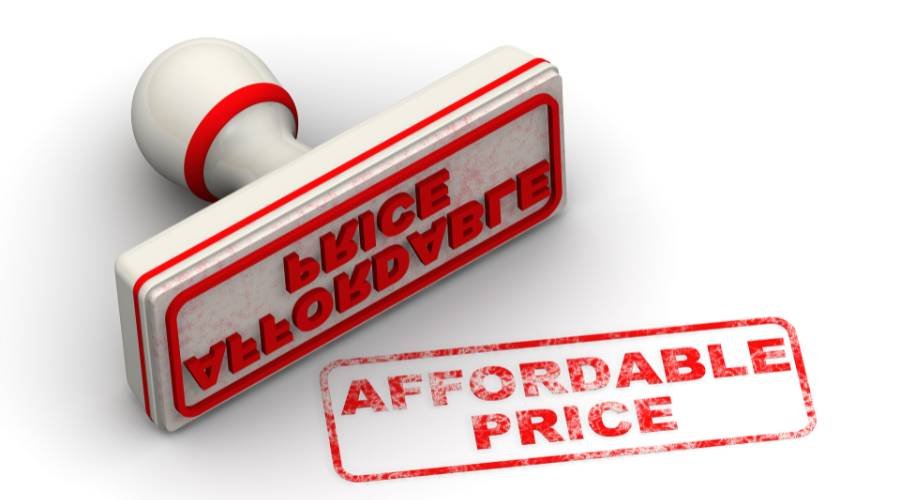In the rapidly evolving digital landscape, building a strong real estate brand online has become a crucial strategy for success. This comprehensive guide delves into the essential elements of digital marketing for real estate agents, empowering you to establish a powerful online presence and stand out in the competitive real estate market.
From crafting a professional website to leveraging the power of social media platforms, this guide covers a wide range of strategies that will help you effectively showcase your expertise, connect with potential clients, and ultimately, drive leads and grow your business.
Key Takeaways on Building a Real Estate Brand Online
- Understand the core brand elements for real estate professionals and how to differentiate your offerings.
- Discover the essential steps to building a real estate brand online, from creating a professional website to implementing content marketing strategies.
- Leverage social media platforms like Instagram, LinkedIn, and Facebook to showcase your expertise and engage with your target audience.
- Explore effective video marketing techniques to showcase your properties and personal brand.
- Implement email marketing campaigns that nurture leads and convert them into clients.
- Learn how to manage your online reputation and leverage analytics to continuously optimize your digital marketing efforts.
- Discover a range of digital marketing tools and resources to streamline your real estate branding and marketing initiatives.

Understanding the Fundamentals of Real Estate Branding
In the dynamic world of real estate, a strong online presence and a well-defined brand are essential for success. As a realtor, cultivating a robust real estate branding strategy can be the key to attracting and retaining clients in the digital age.
Core Brand Elements for Real Estate Professionals
Effective real estate branding goes beyond just a logo or a catchy tagline. It encompasses a holistic approach that includes your visual identity, messaging, and core values. Establishing a consistent brand aesthetic, from your website to your marketing materials, can help you stand out in a crowded market and build trust with potential clients.
Identifying Your Unique Value Proposition
To differentiate yourself in the real estate industry, it’s crucial to identify your unique value proposition. What sets you apart from other realtors? Is it your specialized knowledge of a particular neighborhood, your customer-centric approach, or your proven track record of successful transactions? Clearly articulating your unique value proposition can be a game-changer in your real estate branding efforts.
Setting Brand Goals and Objectives
Crafting a comprehensive real estate branding strategy requires setting well-defined goals and objectives. These could include increasing your online visibility, building a loyal client base, or positioning yourself as a trusted local expert. By aligning your branding initiatives with measurable goals, you can more effectively track your progress and make data-driven decisions to enhance your online presence for realtors.
| Key Brand Elements | Unique Value Proposition | Branding Goals |
|---|---|---|
|
|
|
“Effective real estate branding strategies can help you stand out in a crowded market and build trust with potential clients.”
Building a Real Estate Brand Online: Essential Steps
In the dynamic world of real estate, establishing a strong online presence for realtors is crucial for success. Building a real estate brand online requires a strategic approach that encompasses various digital touchpoints. Let’s explore the essential steps to help real estate professionals elevate their brand and connect with their target audience.
Develop a Cohesive Visual Identity
Crafting a consistent visual identity is the foundation of a robust online brand. This includes creating a professional logo, selecting a harmonious color palette, and establishing a distinctive brand style. Ensure that these elements are seamlessly integrated across your website, social media profiles, and all marketing materials.
Cultivate a Unique Brand Voice
Your brand voice is the personality you convey through your online presence. It should resonate with your target audience and set you apart from the competition. Determine the tone, language, and messaging that best aligns with your brand’s values and the needs of your clients.
Optimize Your Website for Search
Your website is the digital hub of your real estate brand. Ensure that it is optimized for search engines by conducting keyword research, implementing on-page SEO tactics, and creating a mobile-responsive design. This will enhance your visibility and make it easier for potential clients to find you online.
Leverage Social Media Platforms
- Establish a strong presence on key social media platforms, such as Facebook, Instagram, and LinkedIn.
- Curate and share content that showcases your expertise, local market knowledge, and the unique value you offer.
- Engage with your followers, respond to comments, and build genuine connections with your audience.
Implement Targeted Digital Marketing
Complement your online branding efforts with strategic digital marketing campaigns. This may include paid advertising, email marketing, and content creation that resonates with your target audience. Regularly measure and analyze the performance of your marketing initiatives to optimize your approach.
By following these essential steps, you can effectively build a real estate brand online and enhance your online presence for realtors. With a cohesive brand identity, compelling content, and a strategic digital marketing approach, you can attract, engage, and convert potential clients in the digital landscape.
Creating a Professional Real Estate Website
In the digital age, a robust online presence is essential for real estate professionals to attract and engage potential clients. A well-designed, user-friendly website is the cornerstone of this digital strategy, serving as a hub for showcasing listings, sharing valuable content, and building trust with your audience.
Key Website Features for Realtors
An effective real estate website should include the following key features:
- Visually appealing property listings with high-quality images and virtual tours
- Clear calls-to-action, such as lead capture forms, to generate inquiries and leads
- Informative blog or resource center to position you as an industry expert
- Easy-to-navigate search functionality to help visitors quickly find relevant properties
- Mobile-responsive design to ensure a seamless user experience across devices
Optimizing for Local Search
To ensure your real estate website design is found by local buyers and sellers, it’s essential to optimize your site for local search. This includes incorporating relevant keywords and location-specific information, as well as claiming and optimizing your Google My Business listing.
Mobile Responsiveness and User Experience
In today’s mobile-first world, a website for realtors must be designed with mobile responsiveness in mind. This means ensuring the site’s layout, navigation, and content adapt seamlessly to various screen sizes and devices. By prioritizing user experience, you can improve engagement, reduce bounce rates, and ultimately convert more visitors into leads.
By incorporating these essential elements, you can create a professional, online presence for realtors that showcases your expertise, generates leads, and ultimately drives success for your real estate business.
Developing a Content Strategy for Real Estate Success
In the dynamic world of real estate, a robust content marketing strategy can be the key to driving success. By crafting high-quality, engaging content, real estate agents and brokers can establish themselves as industry experts, attract potential clients, and nurture valuable relationships. Let’s explore the power of content marketing for real estate and uncover the essential elements for a winning strategy.
Diversify Your Content Offerings
Effective content marketing for real estate agents involves a diverse array of content formats. From informative blog posts and detailed property listings to insightful market reports and neighborhood guides, each type of content serves a specific purpose in capturing the attention of your target audience. By catering to the varying preferences and needs of potential buyers and sellers, you can create a well-rounded content strategy that resonates with your audience.
Consistency is Key
Consistency is a fundamental pillar of successful real estate content marketing. Establish a content calendar that outlines your publishing schedule, ensuring a steady stream of fresh and relevant content. This not only keeps your audience engaged but also demonstrates your commitment to providing valuable information on a regular basis.
Leverage Multiple Channels
In the digital age, effective digital marketing for real estate agents requires a multi-channel approach. Distribute your content across a variety of platforms, from your professional website and social media channels to email newsletters and industry publications. By reaching your audience through multiple touchpoints, you can amplify your message and maximize your impact.
Crafting a content strategy for real estate success is an ongoing process that requires a deep understanding of your target audience, a commitment to quality, and a willingness to adapt to the ever-evolving digital landscape. By embracing the power of content marketing for real estate, you can position yourself as a trusted authority and drive meaningful engagement with potential clients.
Leveraging Social Media Platforms for Real Estate Marketing
In today’s digital landscape, real estate professionals can leverage the power of social media to enhance their online presence for realtors and effectively social media for real estate marketing. By strategically utilizing popular platforms like Instagram, LinkedIn, and Facebook, you can showcase your listings, build professional networks, and engage with potential clients.
Instagram for Real Estate Showcasing
Instagram’s visually-driven nature makes it an ideal platform for real estate agents to showcase their properties. Use high-quality, eye-catching images and short videos to highlight the unique features and lifestyle appeal of your listings. Leverage Instagram Stories to provide virtual tours and give your followers a behind-the-scenes look at your business.
LinkedIn for Professional Networking
As a real estate professional, LinkedIn is a powerful tool for building and maintaining your professional network. Optimize your profile to showcase your expertise, and actively engage with industry peers, potential clients, and other relevant connections. Share valuable real estate-related content, join relevant groups, and participate in discussions to position yourself as a thought leader in the field.
Facebook Marketing Strategies
Facebook remains a popular platform for real estate marketing. Create a business page to share listings, market your services, and engage with your local community. Utilize targeted advertising to reach potential buyers and sellers in your area. Additionally, consider joining or creating Facebook groups related to real estate, where you can share insights, answer questions, and build trust with your audience.
By leveraging the unique features and capabilities of these social media platforms, real estate professionals can effectively build their online presence for realtors and implement social media for real estate marketing strategies that drive engagement, generate leads, and ultimately, help grow their business.
Video Marketing Techniques for Real Estate Agents
In the digital era, real estate video marketing has emerged as a powerful tool for real estate agents to showcase their properties, connect with potential clients, and build their online presence. By leveraging the power of video, agents can create engaging and visually compelling content that captivates their audience and sets them apart from the competition.
One of the most effective types of real estate videos is the property tour. These immersive virtual walkthroughs allow potential buyers to experience a property from the comfort of their own homes, giving them a realistic sense of the layout, features, and ambiance. Neighborhood showcases are another valuable video format, highlighting the local amenities, community vibe, and lifestyle opportunities that a particular area has to offer.
To truly resonate with viewers, digital marketing for real estate agents should also include client testimonials. Hearing firsthand accounts of satisfied customers can build trust, credibility, and social proof, encouraging others to consider the agent’s services.
When creating real estate videos, it’s crucial to focus on high-quality production values, engaging storytelling, and strategic optimization for search engines and social media platforms. By following best practices for video marketing, real estate agents can maximize the reach and impact of their content, ultimately driving more leads and closing more deals.
| Video Type | Purpose | Key Features |
|---|---|---|
| Property Tour | Showcase a specific property | Immersive walkthrough, highlight unique features, emphasize lifestyle |
| Neighborhood Showcase | Highlight the local community | Showcase amenities, community vibe, lifestyle opportunities |
| Client Testimonials | Build trust and credibility | Authentic customer reviews, showcase agent’s expertise and service |
“Real estate video marketing is no longer a luxury, but a necessity for agents looking to stand out in a crowded market and connect with modern, tech-savvy buyers.”

Email Marketing Campaigns That Convert
As a real estate professional, email marketing can be a powerful tool to reach and engage your target audience. By crafting compelling email campaigns, you can effectively nurture leads, stay top-of-mind with past clients, and ultimately drive more conversions. In this section, we’ll explore the keys to building successful email marketing strategies that deliver results for your real estate business.
Building and Segmenting Email Lists
The foundation of any effective email marketing campaign is a well-curated email list. Start by collecting email addresses from your website visitors, past clients, and other lead sources. Segment your list based on factors like buyer/seller status, location, property interests, and more. This will allow you to send highly personalized and relevant content to your subscribers, improving open and click-through rates.
Crafting Compelling Property Newsletters
One of the most powerful email marketing tools for real estate agents is the property newsletter. Showcase your latest listings, share market insights, and provide value-added content that engages your subscribers. Use eye-catching visuals, concise copy, and a clear call-to-action to encourage readers to take the next step, whether that’s scheduling a showing or contacting you for their real estate needs.
Automated Email Sequences for Lead Nurturing
- Set up automated email sequences to nurture leads and stay connected with your database.
- These could include welcome messages, property updates based on buyer preferences, and periodic check-ins to maintain top-of-mind awareness.
- By automating these touchpoints, you can keep your brand front and center without constant manual effort.
Remember, the key to successful email marketing for realtors is to provide value, personalize your outreach, and continuously optimize your campaigns based on data and customer feedback. By leveraging email as part of your broader digital marketing strategy, you can build stronger relationships, generate more leads, and drive more successful real estate transactions.
Managing Your Online Reputation as a Realtor
In the digital age, a realtor’s online reputation can make or break their business. Online reputation management for realtors is essential for building a strong real estate brand online. By proactively monitoring and managing your online presence, you can ensure that potential clients see you as a trustworthy and reliable professional.
Here are some key strategies for managing your online reputation as a realtor:
- Monitor Online Reviews and Mentions: Regularly check platforms like Google, Yelp, and social media for reviews and mentions of your real estate services. Respond promptly and professionally to both positive and negative feedback.
- Leverage Positive Testimonials: Encourage satisfied clients to leave positive reviews and testimonials on your website and social media channels. These can be powerful social proof that can help attract new leads.
- Maintain a Professional Online Presence: Ensure that your website, social media profiles, and other digital assets present a consistent, professional, and on-brand image. This can help reinforce your credibility and expertise.
- Address Negative Feedback Tactfully: When faced with negative reviews or comments, respond calmly and constructively. Offer to resolve any issues and demonstrate your commitment to customer satisfaction.
- Proactively Promote Positive News: Highlight your achievements, awards, and other positive news about your real estate business to counteract any negative online mentions.
By implementing these online reputation management strategies, you can effectively build a real estate brand online and position yourself as a trusted and respected realtor in your local market.
Analytics and Performance Tracking
As digital marketing for real estate agents becomes increasingly crucial, understanding the performance of your online presence is essential. Tracking key metrics and analyzing data can help you make informed decisions to optimize your digital marketing for real estate agents and drive better results.
Key Metrics for Real Estate Marketing
When it comes to measuring the success of your online presence for realtors, there are several key metrics to focus on. These include website traffic, lead generation, conversion rates, social media engagement, and email campaign performance. By closely monitoring these metrics, you can gain valuable insights into what’s working and where improvements are needed.
Tools for Measuring Success
A variety of tools are available to help you track and analyze the performance of your digital marketing efforts. Google Analytics, for instance, provides comprehensive data on website traffic, user behavior, and conversion rates. Social media platforms like Facebook, Instagram, and LinkedIn also offer built-in analytics to measure engagement and reach. Additionally, email marketing platforms often include detailed reporting on open rates, click-through rates, and subscriber activity.
Adjusting Strategies Based on Data
The real power of analytics lies in the ability to use data-driven insights to refine your digital marketing for real estate agents strategies. By closely monitoring your metrics, you can identify which tactics are yielding the best results and where you need to make adjustments. This could involve optimizing your website content, fine-tuning your social media messaging, or revising your email marketing campaigns to better engage your target audience.
| Metric | Description | Importance for Real Estate Marketing |
|---|---|---|
| Website Traffic | The number of visitors to your real estate website | Indicates the reach and visibility of your online presence |
| Lead Generation | The number of potential clients who provide their contact information | Measures the effectiveness of your website and marketing efforts in attracting new leads |
| Conversion Rate | The percentage of website visitors who take a desired action, such as submitting a form or contacting you | Helps evaluate the performance of your website and marketing strategies in converting leads into clients |
| Social Media Engagement | Metrics like likes, shares, comments, and followers on your real estate social media accounts | Indicates the level of engagement and interest your online presence for realtors is generating |
| Email Campaign Performance | Metrics such as open rates, click-through rates, and unsubscribe rates for your email marketing efforts | Allows you to assess the effectiveness of your email marketing strategies in connecting with potential clients |
Digital Marketing Tools and Resources
As a real estate professional, staying ahead of the digital curve is crucial. Fortunately, there’s a wealth of tools and resources available to help you effectively manage your online branding and marketing efforts. From social media management platforms to email marketing solutions and customer relationship management (CRM) systems, this section will guide you through the essential digital marketing tools that can elevate your real estate business.
One of the key components of successful digital marketing for real estate agents is the ability to streamline your social media presence. Tools like Hootsuite, Buffer, and Sprout Social allow you to schedule posts, monitor engagement, and analyze the performance of your social media campaigns across platforms like Instagram, LinkedIn, and Facebook. These platforms can significantly enhance your real estate branding strategies and help you connect with a wider audience.
In addition to social media management, email marketing remains a powerful tool for real estate professionals. Services such as Mailchimp, Constant Contact, and Drip offer intuitive email marketing platforms that enable you to build and segment your contact lists, create visually appealing property newsletters, and automate lead nurturing sequences. These tools can help you stay top-of-mind with your clients and generate valuable leads.
FAQ
What are the core brand elements for real estate professionals?
The core brand elements for real estate professionals include a memorable logo, a unique brand name, a consistent color palette, and a clear brand voice or personality. These elements work together to create a strong and cohesive brand identity that resonates with potential clients.
How can I identify my unique value proposition as a realtor?
To identify your unique value proposition, consider your specialized expertise, the specific needs you can fulfill for clients, and how you differentiate yourself from other realtors in your local market. Analyze your strengths, experiences, and the unique services you offer to determine what sets you apart.
What are the key features a professional real estate website should have?
A professional real estate website should include features such as an intuitive property search function, detailed property listings with high-quality images, a user-friendly interface, a blog or content section, and clear calls-to-action to encourage user engagement and lead generation.
How can I optimize my real estate website for local search?
To optimize your real estate website for local search, focus on incorporating relevant local keywords, creating localized content (e.g., neighborhood guides, market reports), and ensuring your business information (address, phone number, etc.) is accurate and consistent across all online directories and listings.
What types of content are most effective for building a real estate brand online?
Effective real estate content can include blog posts, property listings, market reports, neighborhood guides, client testimonials, and virtual property tours. The key is to create informative, visually appealing, and engaging content that addresses the specific needs and interests of your target audience.
How can I use social media to market my real estate business?
Social media platforms like Instagram, LinkedIn, and Facebook can be powerful tools for real estate marketing. Use Instagram to showcase property listings and lifestyle content, LinkedIn to build professional networks and showcase your expertise, and Facebook for targeted advertising and engaging with potential clients.
What are some best practices for creating real estate videos?
Some best practices for creating effective real estate videos include using high-quality equipment, highlighting unique property features, incorporating client testimonials, and optimizing the videos for search engines and social media platforms. Ensure your videos are visually appealing, informative, and showcase your expertise as a realtor.
How can I build and segment my real estate email list?
To build and segment your real estate email list, start by collecting contact information from your website, networking events, and client interactions. Segment your list based on factors like buyer/seller status, property type, location, or stage in the sales funnel to deliver more personalized and relevant content.
How can I manage my online reputation as a realtor?
To manage your online reputation, regularly monitor online reviews and mentions of your business, respond to feedback professionally, and proactively build a strong online presence through content creation and social media engagement. Leverage positive reviews and testimonials to enhance your credibility and attract new clients.
What are the key metrics I should track for my real estate marketing efforts?
Key metrics for real estate marketing include website traffic, lead generation, email open and click-through rates, social media engagement, and return on investment (ROI) from various marketing campaigns. Tracking these metrics will help you assess the effectiveness of your strategies and make data-driven decisions to optimize your marketing efforts. real estate website design




